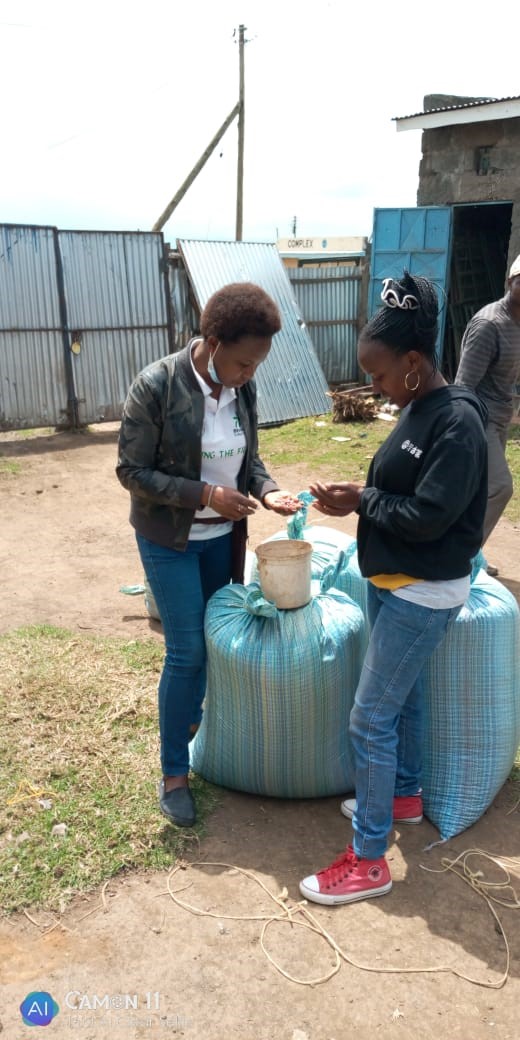By Eileen Nchanji and Patricia Onyango
For Ms. Grace Wambui getting into agriculture did not come as her first option. A chance encounter got her here. After school, she started a small business selling motorbikes spare parts and operated a mobile money kiosk at the growing Kiambogo Shopping centre in Nakuru.
Getting into agriculture came by chance when she met with Florence Malemba, an extension officer around her home area and they got to talking about different agri-business opportunities available for youth.
“I am in agribusiness now, thanks to Florence. I run my spare parts shop, a mobile money business (I have an Mpesa shop and I am actively farming beans. I have leased land since last year for this purpose, and I am not stopping anytime soon. What keeps me growing the bean is that it takes a short time to grow the beans about 2-3months and you are ready to harvest and sell, unlike maize or wheat which takes more time.” She said.
Last year during short rains she grew one acre of local beans; Mwitemania. She planted 30kg and harvested 450 kg (that is 5 bags of 90kg). The yields were very low at the time. However, since it was a new and supplementing income-generating activity, she did not lose hope. She approached Florence who works with the Ministry of Agriculture for guidance and advice on which variety best suited her farmland and what variety would give her better yield and income. Florence took her on a tour to her bean farm where she is growing Nyota Beans – a high iron and zinc bean variety. She was so amazed by the crop on the farm that she requested Florence to sell her some seed to grow in the coming season. In January 2020, Grace bought 30kgs of Nyota seed from Florence in preparation for the long rains in April.
“This is where the money is. With the change of variety, my yield almost doubled! I harvested 720 kg of beans.” She said.
Florence advised her on where she could tap a ready market for her beans. Just like most businesses, there are so many middlemen who could shortchange the farmers offering them low prices. She introduced her to Smart Logistics Ltd, a bean processing business that was ready to buy Grace’s beans. The processor produces products such as bean flour, pre-cooked bean, noodles, etc.
‘’I sold my 6 bags (540 kilograms) of beans for US$ 70 each (Ksh.7000) Smart Logistics Ltd pocketing USD$ 420 (Ksh. 42,000) The remaining 180kg I have reserved to eat and some for seed next season. I am even planning on leasing more land for my next planting.’’ beamed Grace.
She plans to increase the beans’ acreage for the upcoming short rains in September from one acre previously farmed. She aims at producing 10-12 bags per acre after a short training on bean crop management from the extension officer.
‘My biggest mistake in the last season where I got low yield was the use of too little fertilizer on the beans. With the right amount, I am certain the yield will be much better. The rows between my beans were wider than the recommended 15 by 45cm. Part of my crop was also infested by weeds. I know better now with Florence available to guide.” She said.
She plans to reinvest the profits from the bean farming into her two other businesses and employ an extra person to help her run her ventures especially when it gets really busy especially during planting and harvesting which require close monitoring.
This project is supported by the contribution of Global Affairs Canada (GAC), International Development Research Centre (IDRC), Australian Centre for International Agricultural Research (ACIAR), Swiss Agency for Development and Cooperation (SDC).

